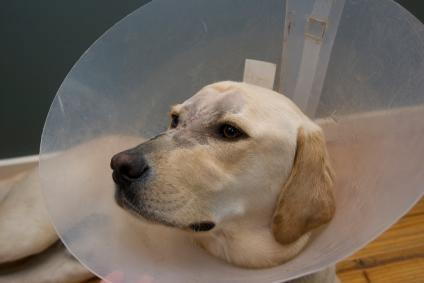
- posted: Nov. 29, 2016
Skin is the largest organ of the body, it has three major functions; protection, regulation and sensation. The skin provides a physical barrier to protect against bacterial invasion, dehydration, physical abrasion of underlining tissues and UV rays. Regulating temperatures by use of sweat glands and adjusting blood flow when exposed to extreme temperatures is another attribute. The function of sensation helps us to better understand how important skin truly is by allowing us to feel these stimuli through the nerve endings; temperature, pressure, pain and touch assist in painting the picture.
Just like humans’ animals suffer from various skin disorders on a constant, in fact about 10 percent of animal files are based around some sort of skin issue. Some of the most common issues that animals have are; allergies, hotspots and sores, dull dry coat and oily odorous skin, hotspots and sores. Considering that the skin is not only a representation of responses to the external environment but the overall health of the body it is incredibly important to treat any of the issues seen by owners.
Dog allergies normally can stem from fleas, environment and food. One sure sign that you can tell that your pet is having trouble is incessant scratching and chewing. Fleas are always a challenge to take care of but with the right treatment recommended by your veterinarian and by keeping the environment clean you should be able to manage the issue. Environmental allergies also called atrophy, normally come from inhalation or direct absorption; medication prescribed by your veterinarian would be a solution to subsiding this allergy. Food is one other common allergen that most owners do not think of or are unaware of. Diet contributes greatly to internal and external functioning of the body. The allergy normally is a result of hypersensitivity to the protein in the foods. Talking to your veterinarian about these potential allergies and inquiring about food trials would be the best way to solve this issue.
A dull or dry coat could pertain to diet as well. Animals just like us, are very different, some may absorb supplements easier then others, as some people have thick or greasy hair and others coarse and thin. Having your veterinarian assess the possible supplements that your animal could be lacking is the best answer. As a dry dull coat, could be something as simple as Omega 3s and fish oils; the opposite greasy coat could be a yeast infection, by referring to your veterinarian these symptoms can be diagnosed and hopefully solved.
Sores and hotspots (which can also be referred to as dermatitis) are irritated and inflamed skin that can be caused by fleas, mites, allergies to the environment or even over grooming. If your dog can get at the spot and starts licking or itching it further damage can be done. Topical treatment or oral treatment is normally the solution for this issue as prescribed by your veterinarian. It is very important to refer to a veterinarian when you do notice something abnormal or that your pet is uncomfortable in anyway. Please contact us here at Lakeshore Road Animal Hospital if you have any questions or concerns.
http://www.petmd.com/dog/general-health/evr_dg_ski...
http://www.petmd.com/dog/centers/nutrition/evr_dg_...
http://www.petmd.com/dog/care/evr_hot_spots_what_a...
Lakeshore Road Animal Hospital
2319 Lakeshore Road W, Oakville
289-837-0100
Office Hours
8:00 AM - 8:00 PM
9:00 AM - 2:00 PM
Closed
Location
2319 Lakeshore Rd W.
Oakville, ON L6L 1H2, Canada


